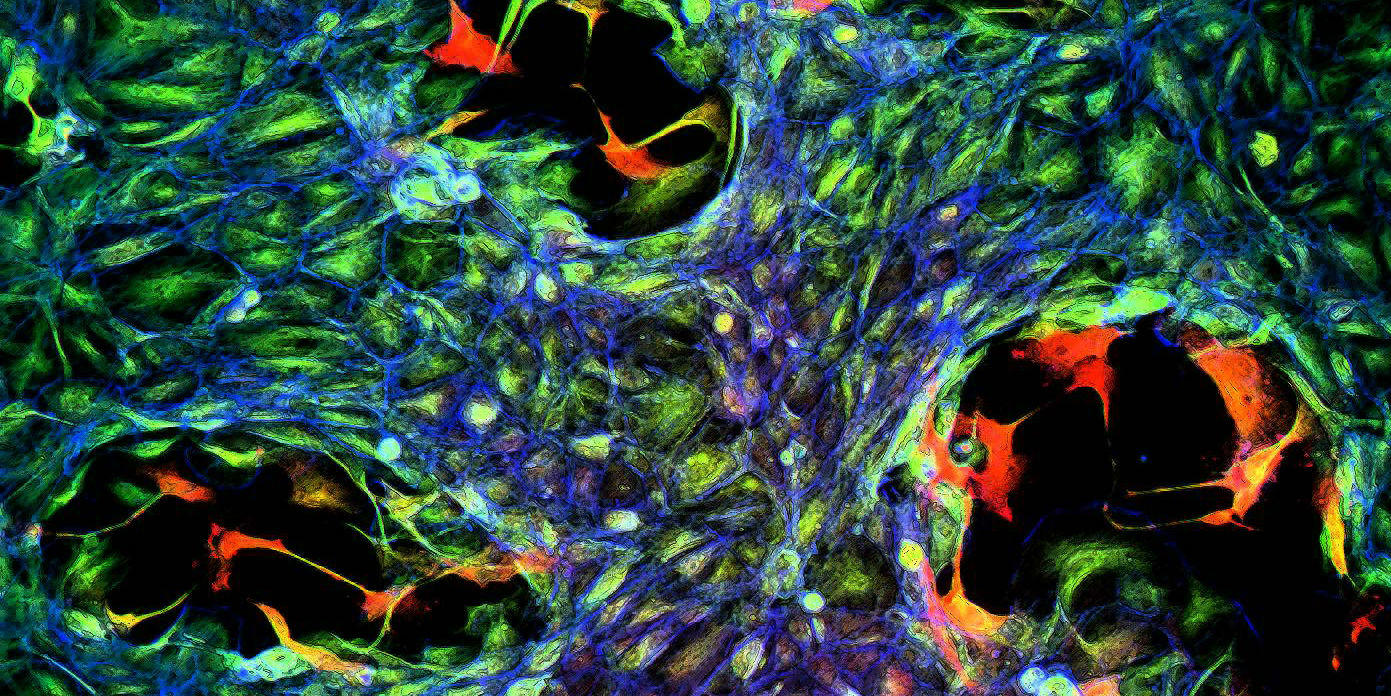Multidisciplinary Project Award
About this scheme
Key information
*This funding scheme is currently closed and we are not accepting new outline applications whilst we reconfigure our offering in the multidisciplinary space. We expect that a new scheme will be launched in 2025. To be kept up to date, sign up for CRUK's Researcher Newsletter here. For an overview of other available opportunities, please see here.*
Applications should ideally include:
- a minimum of two PIs working in distinct scientific disciplines
- at least one PI working in cancer research at any career stage
- at least one PI from an engineering/physical science discipline at any career stage
Applications will be accepted from UK universities, research institutions, CRUK Institutes, medical schools and hospitals. The award is not required to be co-located and can be held across institutions in the UK. Supporting roles from international and commercial organisations may also be included.
If you are unsure of your eligibility, please contact the office.
Remit
The aim of these awards is to generate creative research ideas and explore their applicability in cancer research. These awards are awarded jointly between Principal Investigators (PI) from engineering/physical science disciplines, and PIs who are working in cancer research.
With a primary focus on multidisciplinary research, the research themes within remit for this award include:
- The direct application of physics, engineering, chemical or mathematical concepts to address the underlying physical processes of cancer, including tumour initiation, growth and metastasis.
- The development of new transformational approaches or the translation of technologies for direct applications in, or a clear path to, a direct application in the prevention, diagnosis or treatment of cancer. Proposals for the first applications of technologies in cancer research and those which demonstrate potential clinical applicability are encouraged.
In addition, we welcome proposals across all engineering and physical science disciplines including physics, engineering, mathematical and computational modelling, chemical and molecular sciences, materials science, molecular/tissue engineering and regenerative medicine. For more specific details of research supported by Multidisciplinary Project Awards, please refer to the scheme guidelines.
Multidisciplinary Project Awards are designed to fund individual project proposals; research proposals of a similar nature but which encompass a more detailed body of work may be more suitable for Programme Awards.
Funding support is provided for:
- Postdoctoral researchers
- PhD students (stipend, fees and running expenses)
- Technical staff
- Associated running expenses
- Equipment
We are also giving applicants to this funding scheme the opportunity to opt-in to a new multi-journal pilot project on Registered Reports.
How to apply to this scheme
Overview of the application process
Applications for Multidisciplinary Project Awards are considered twice a year and follow a two-stage process:
- A short project outline must be uploaded to our electronic Grants Management System (Flexi-Grant). An example outline form (docx) is provided to help you prepare your outline application. Outline applications will be considered by the Multidisciplinary Expert Review Panel.
- Full applications will be invited from successful outline applicants to be submitted to our Flexi-Grant. These will be reviewed by the Multidisciplinary Expert Review Panel and a final funding decision made by the Discovery Research Committee.
Timelines
Applications for Multidisciplinary Project Awards are considered twice a year.
*This scheme has now closed to new outline applications.*
| Full Application Deadline | Committee Review |
|---|---|
| 3 December 2024 | June 2025 |
Before you begin your application
The Discovery Research Committee will judge your proposal based on:
- Scientific excellence: all applications must have a strong scientific rationale, as well as appropriate experimental design and statistical analyses, to support the proposed research proposal.
- Cancer relevance: value of the proposed work in advancing the fundamental understanding of cancer or improving how cancer is diagnosed and/or treated.
- Track record: the lead applicant and/or team members should have an excellent track record and potential to produce outstanding results.
- Excellent team and collaborative environment: suitability and feasibility of the Lead Applicant(s) (and supporting roles) to carry out the proposed research with access to the resources and facilities required for the successful fulfilment of the Award. The added value of the proposed collaboration and the individual contributions, as well as the steps taken to ensure an effective collaboration.
- Resources requested: the costs requested in an application should be for the direct costs of the research and be reasonably justified in line with the experimental plans, leveraging existing resources where appropriate.
The Committee will also consider how your proposed research aligns with our strategic priorities, as set out in our Discovery Research Statement of Intent and our broader Research Strategy.
The 5 year rolling success rate (financial year 2020-2025) from application to funding for this scheme is 5.4%.
Applications are assessed by the Multidisciplinary Expert Review Panel. Final funding decisions are made by the Discovery Research Committee.
Cancer Research UK contact details
Funded project case studies

Combining models and molecules to understand metastasis
Mathematician Dr John MacKenzie from the University of Strathclyde and molecular biologist Professor Robert Insall from the CRUK Beatson Institute have teamed up their respective skills to take a novel approach to understanding cell migration.

Bubbles, ultrasound and radiotherapy: creating a new approach to drug delivery
At the University of Oxford, a clinical oncologist, biomedical engineer and biophysicist are sharing their respective expertise to unlock exciting new approaches in chemotherapy and radiotherapy using ultrasound.
Disability and accessibility support
We offer additional support for grant applicants and grant holders who are disabled or have a long-term health condition.
Environmental sustainability in research
Researchers applying to our funding schemes from 2026 will be required to demonstrate the environmental sustainability of their laboratories by obtaining green lab certification.
Case study: funding mathematics and molecular biology

Mathematician John MacKenzie and molecular biologist Robert Insall have teamed up to take a novel approach to understanding cell migration. Find out how their complementary skills and clear clinical direction make a great multidisciplinary project.
Harnessing the power of diverse perspectives

We're driving collaboration and strengthening networking as multidisciplinary team science becomes ever more essential to beating cancer.
